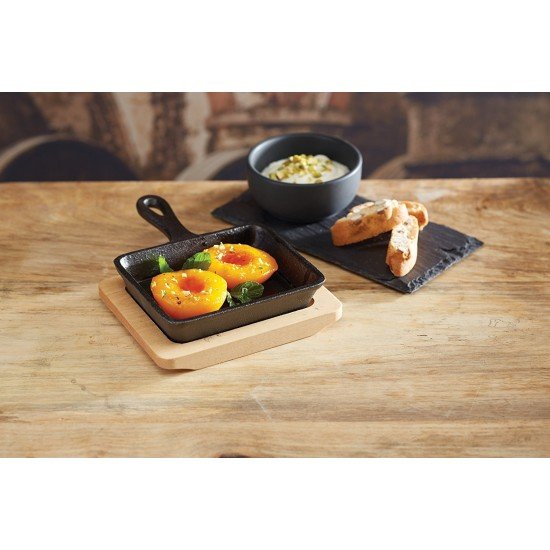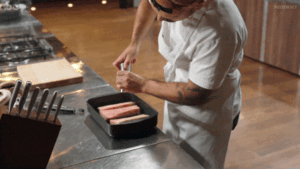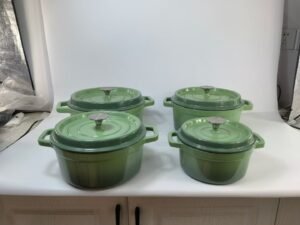What Are the Benefits of Cast Iron Pans and Why Should You Use Them?
If you’re cooking with non-stick pans, you might be missing out on the full cooking experience that cast iron pans offer. Not only do they provide superior cooking capabilities, but they are also ideal for various kitchen tasks beyond cooking. Here’s why you should consider investing in a cast iron pan.
The Versatility and Durability of Cast Iron Pans
Most cast iron pans are a solid, versatile option:
- Heat Retention: Cast iron retains heat better than other metal pans, making it great for searing and slow-cooking.
- Heat Source Compatibility: They work on all heat sources, including gas, electric, induction, and even over an open flame.
- Non-Stick Potential: With a little light seasoning, they can be made non-stick.
- Longevity: They last a long time and cook evenly, making any novice or experienced chef’s job easy.
For more on cast iron versatility, visit our article on What is a Cast Iron Skillet Used For?.
Is Cooking with Cast Iron Healthier?
Cooking with cast iron has its health benefits:
- Iron Absorption: If you suffer from iron deficiencies, cooking in cast iron can increase iron intake slightly.
- Minimal Nutrient Alteration: While cooking with cast iron doesn’t necessarily enhance the natural nutrients of your food, the added iron can be beneficial.
For further details on cookware health benefits, explore What to Look for When Buying Cookware.
What Are the Disadvantages of Cast Iron Pans?
While excellent, cast iron pans have some drawbacks:
- Weight: They are much heavier than traditional cookware, which can be a challenge for some users.
- Maintenance: Regular seasoning is required to prevent rust, which can affect its non-stick and protective qualities.
- Reactivity: Acidic foods like tomatoes and citrus can react with the pan, potentially stripping the seasoning and affecting taste.
For maintenance tips, see our guide on How to Season Cast Iron Cookware.
The Advantage of a Cast Iron Pan
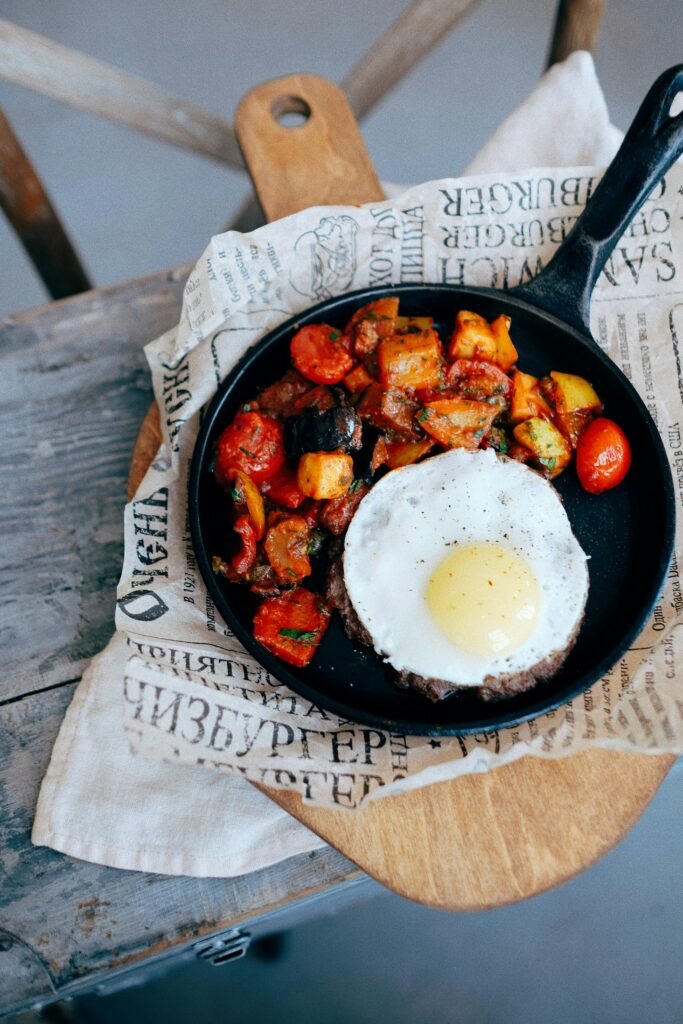
The primary advantage of cast iron is its exceptional heat retention:
- Even Cooking: It disperses heat evenly, helping food cook uniformly and stay warm longer.
- Versatility: Suitable for use on any cooking surface and can be placed directly in the oven, perfect for recipes like cornbread or pizza.
Learn more about using cast iron in different cooking scenarios in Can I Use a Cast Iron Dutch Oven to Grill Steak?.
What Shouldn’t You Cook in Cast Iron?
Certain foods should be avoided in cast iron:
- Acidic Foods: Prolonged cooking of tomato sauce, wine-based sauces, and citrus can strip the seasoning, causing metallic tastes.
For alternative cooking tips, check our Cast Iron Griddle Uses.
How to Season Cast Iron for the Best Results
Maintain your cast iron with proper seasoning:
- Clean the Pan: Use warm water and mild soap for new pans. Dry completely.
- Apply Oil: Rub cooking oil over the entire surface, including the handle.
- Bake the Pan: Place upside down in a 450°F oven for one hour, using foil to catch drips.
For a detailed seasoning process, see How to Season Cast Iron Cookware.
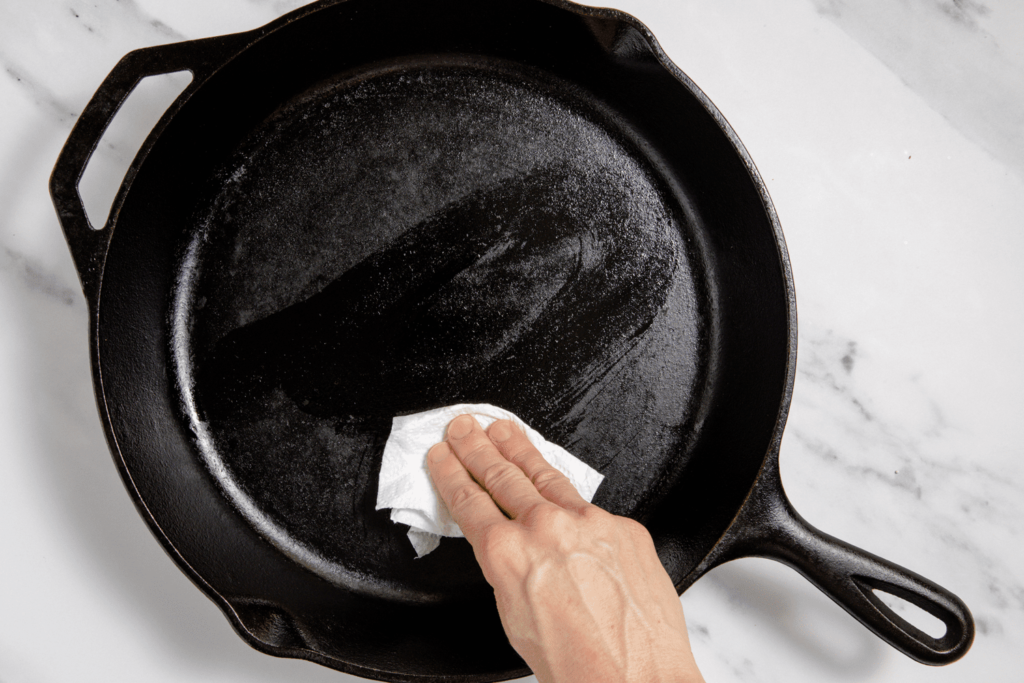
How to Clean Cast Iron Pans
Cleaning cast iron requires different care:
- Avoid Soap: It can strip away seasoning.
- Use a Stiff Brush: Or a wooden spatula to remove food residue. Scrub with coarse salt if needed.
- Dry Thoroughly: Apply a thin coat of oil after drying.
For more cleaning techniques, visit How to Choose Cast Iron Cookware.
Is Cast Iron Healthier Than Non-Stick?
Consider the health implications:
- Chemical-Free: Cast iron is free from chemicals found in non-stick coatings, which can degrade and release harmful fumes.
- Iron Enrichment: It can add some iron to your food, which is beneficial for those with iron deficiencies.
For more on healthier cookware options, read What Are the Benefits of Enameled Cast Iron?.
The Properties and Uses of Cast Iron
Cast iron excels in heat retention and even heat distribution:
- Versatile Use: Ideal for frying, searing, sautéing, and baking.
- Durability: With proper care, it can last a lifetime.
Explore more about cast iron’s versatility in Cast Iron Grill Pan Uses.
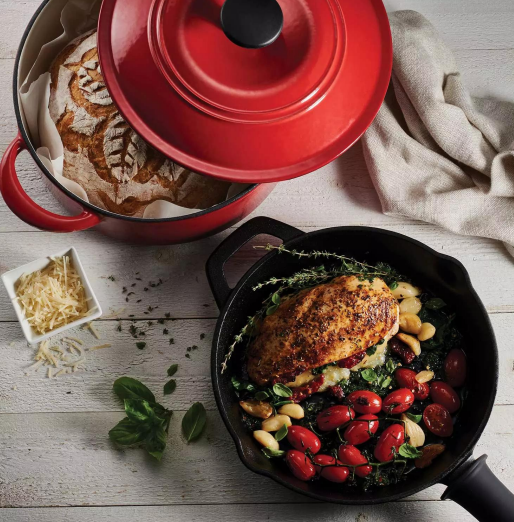
Conclusion
Cast iron pans are the most versatile cookware for any kitchen. From frying to baking, they offer unmatched durability and performance. Invest in quality cast iron cookware—it’s affordable, easy to maintain, and lasts forever. Perfect for both home and professional kitchens, cast iron is a smart choice for cooks who value quality and longevity.
For more kitchen essentials and purchasing tips, visit What Kitchenware Are Popular in the USA?.

